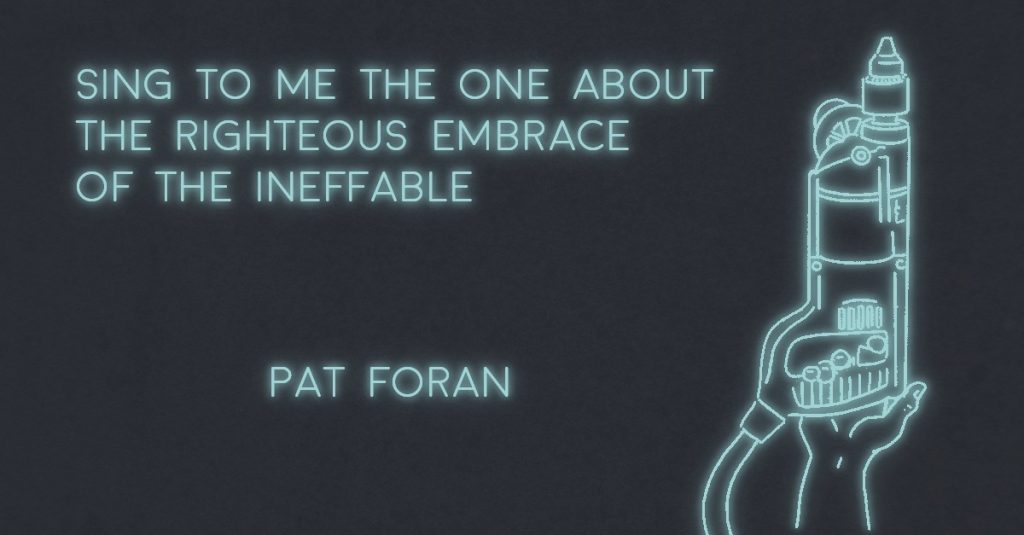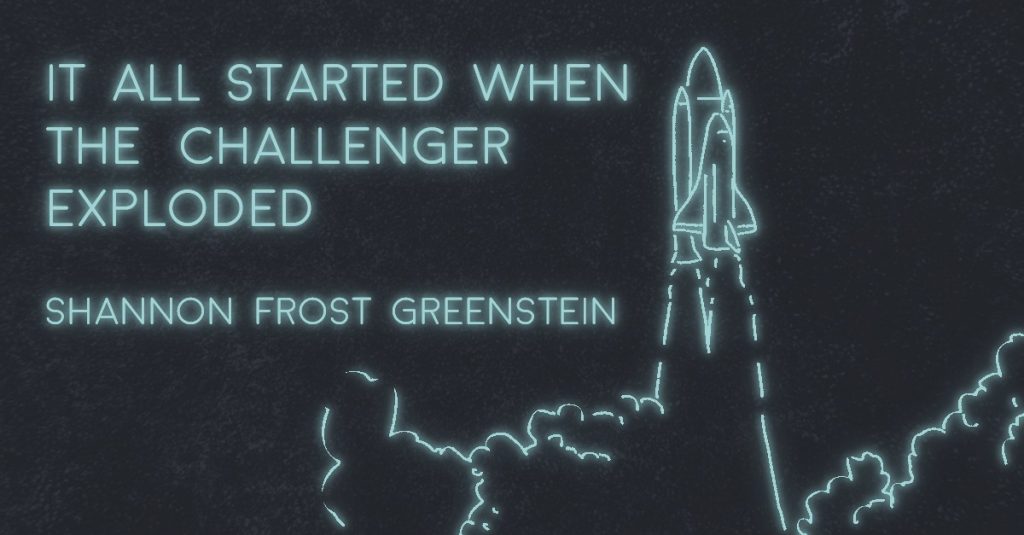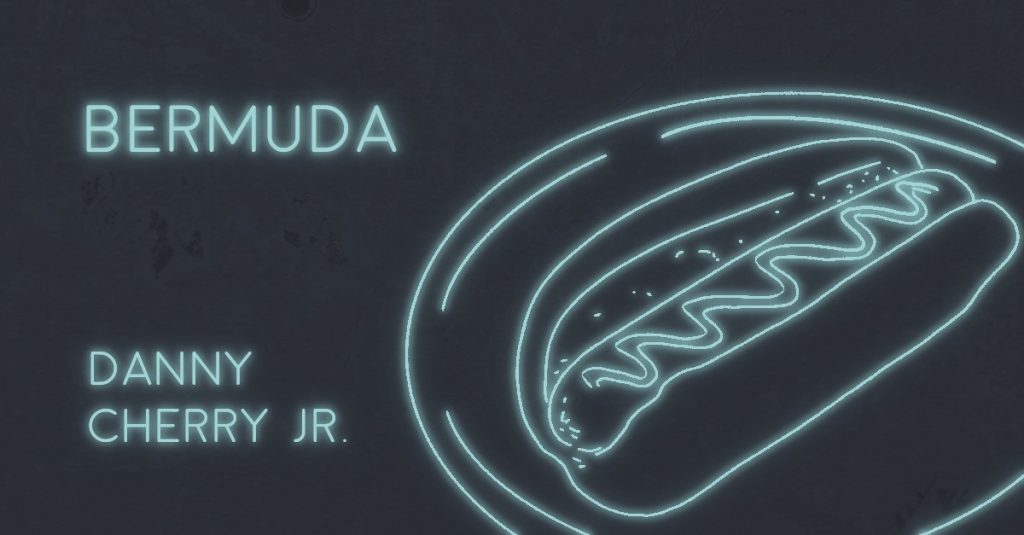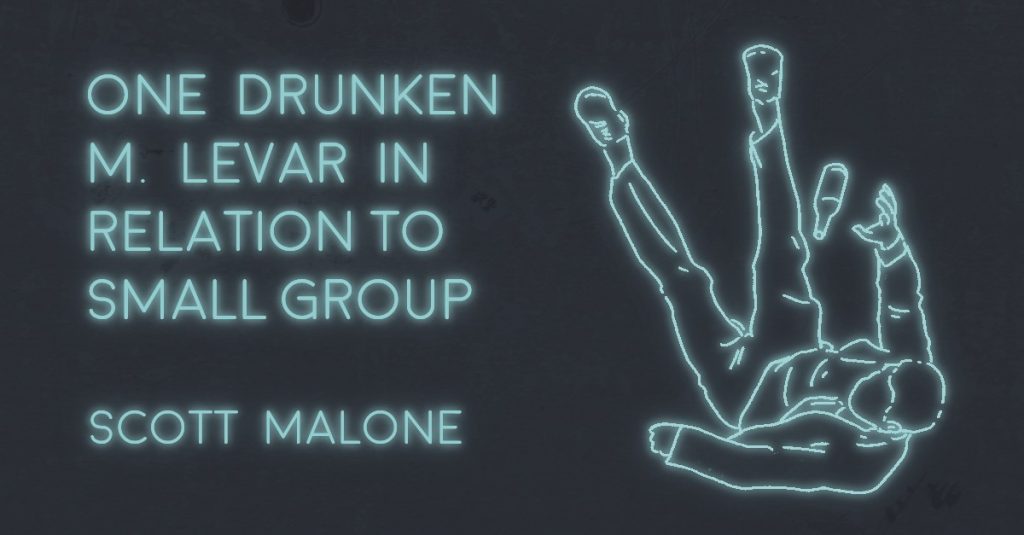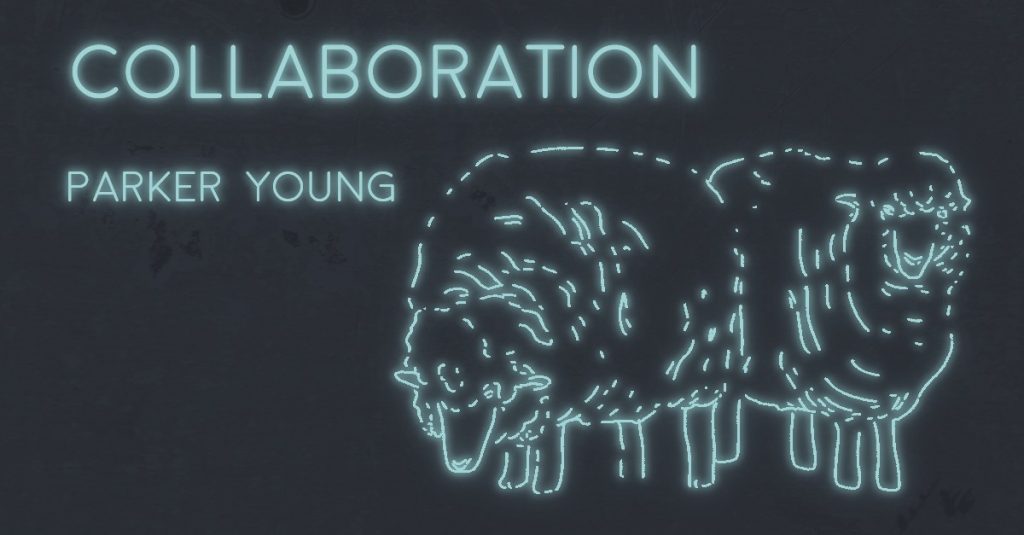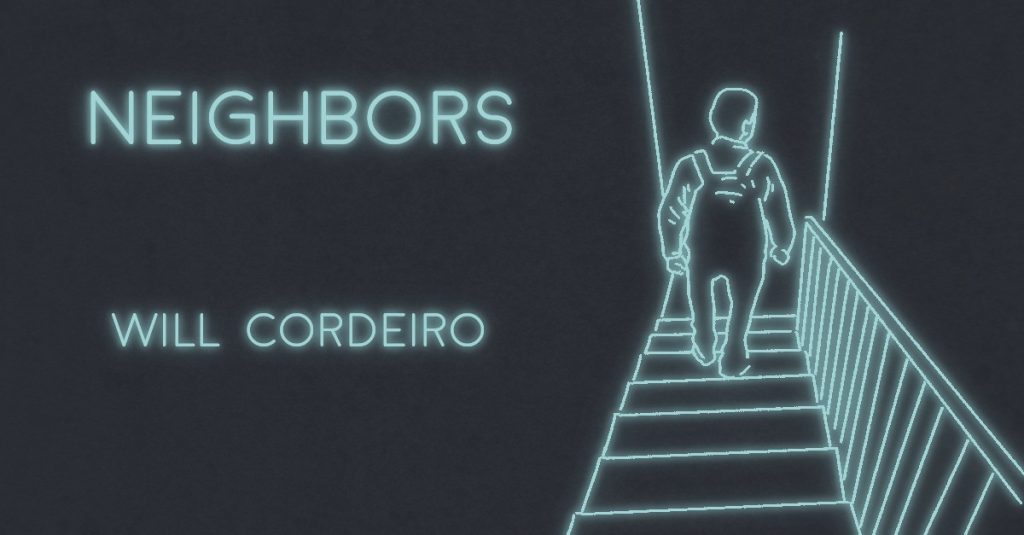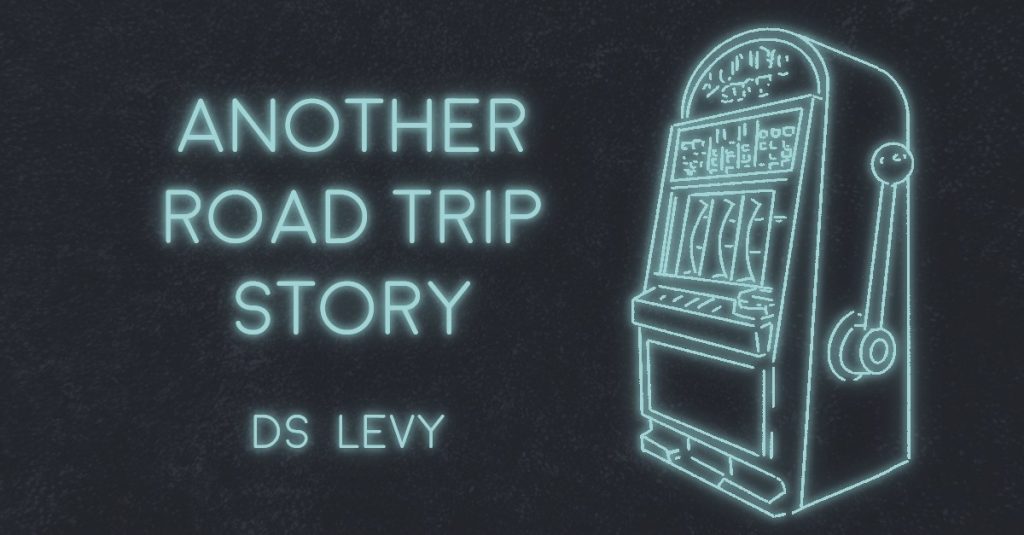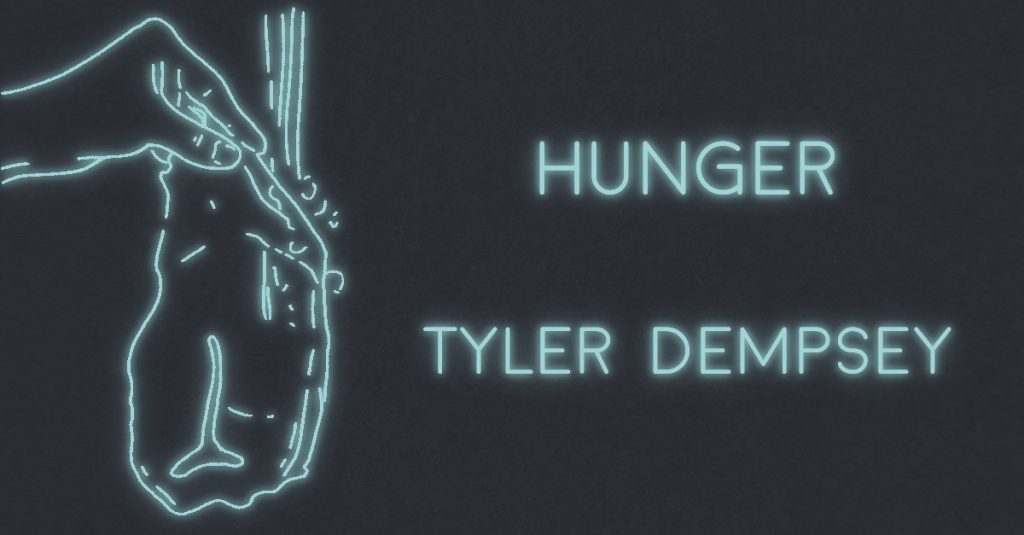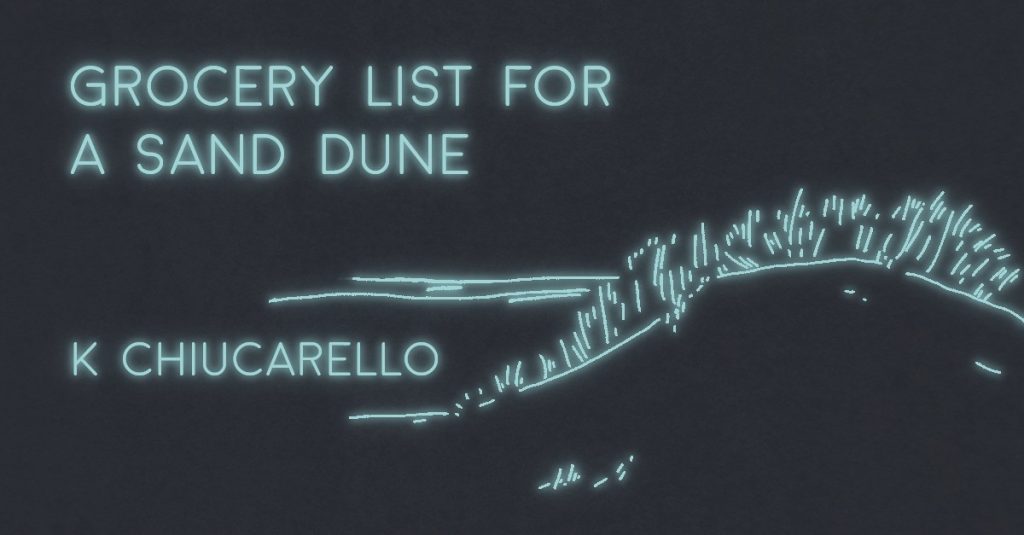
A GROCERY LIST FOR A SAND DUNE by K Chiucarello
The grains could never contain me. I had always been a shape-shifting blurry little thing packed tall behind foundation slabs, their windows blown out with the shutters ringing loose, paint chipping off the front tooth. When the coastline birthed me, I was a miracle of wonder: pretty as a Cadillac slicked straight, my mother said. Daughters of the fishermen ran atop me, ribbons rippling in the breeze, pairs of feet driving down towards my candied belly, full of a momentum that had me wanting the snow. I explained by long way of lecture to the hills what it was like…

